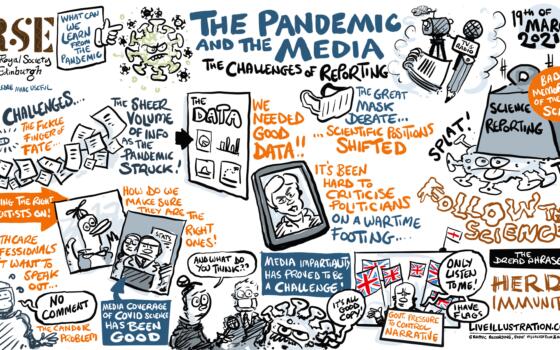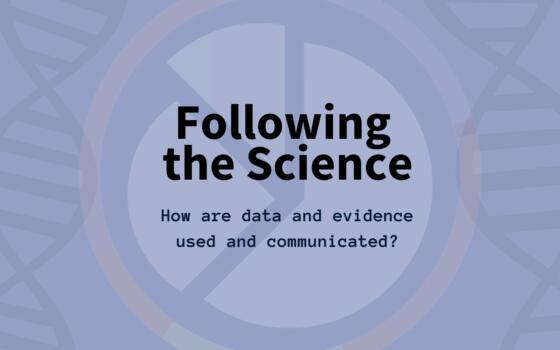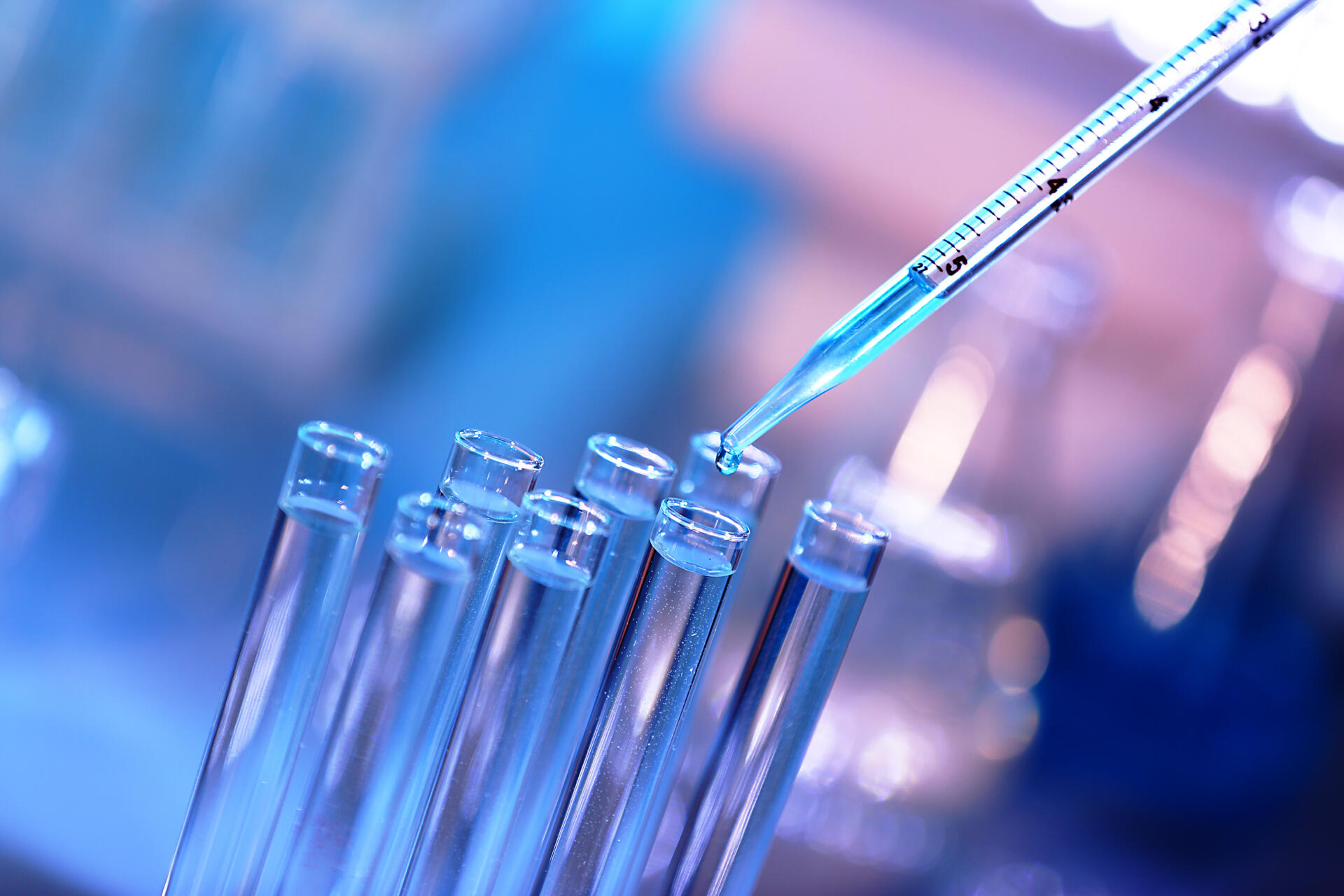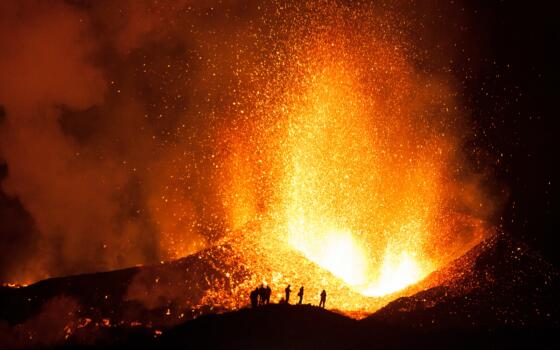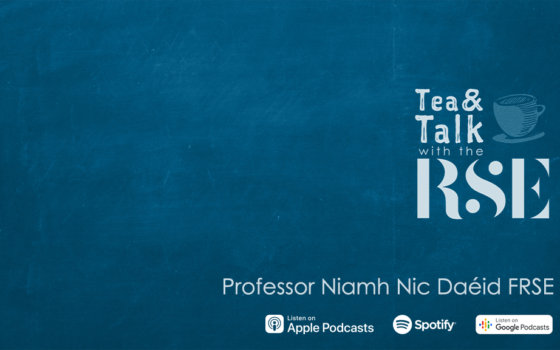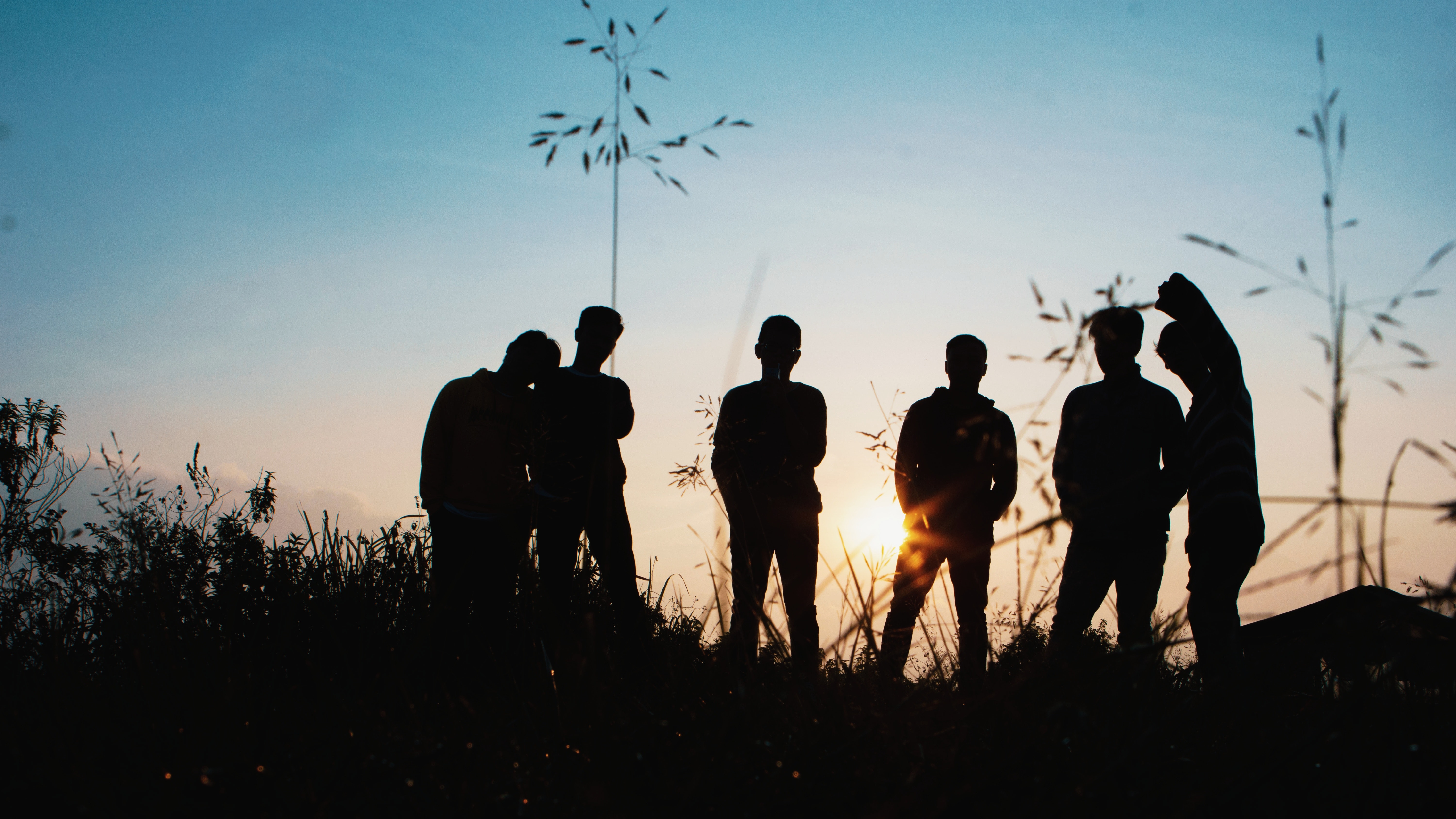What is the vaccine? And how was it developed?
The Data, Evidence & Science working group recognise that for many of Scotland’s youngest citizens the Covid-19 vaccine raises a lot of questions. As part of their objective to enhance Scotland’s ability to effectively utilise data, evidence and science in preparing for and responding to major challenges, experts Professor Francisca Mutapi FAAS FZAS FRSE, Professor in Global Health Infection and Immunity, and Dr Deborah O’Neil OBE FRSE, CEO of NovaBiotics, were put in the hot seat to answer some very good questions put forward by children aged 7-12.
- Will children have to get the vaccine?
- What happens when the vaccine goes inside your body?
- How is the vaccine developed?
Professor Niamh Nic Daeid, RSE Fellow and Chair of Data, Evidence & Science said:
“The children in these videos ask really insightful questions about how vaccines work and our expert Fellows have provided answers to these questions in a way that are accessible and understandable. We hope this video will be a useful resource for teachers who have a key role to play in explaining to their pupils what is happening in the world.”
Watch the full video below to find out the answers to these questions and more. Many thanks to the pupils that submitted questions and dialogue from: Clyde Primary School, Darnley Primary School and Visual Impairment Unit, St Andrews Primary School and Troqueer Primary School.
For English subtitles press the ‘CC’ button.
Do you know what a vaccine is? Not just about coronavirus, but what is a vaccine? We’ve all had jabs before. So what is a vaccine? What is it? Tell me about that.
It helps you become more immune.
What about you, do you want to answer that?
Yeah it strengthens your immune system?
Okay. Cool.
It tries to fight it I think? Like, yeah.
Alright, these are pretty good answers. Do you know how they do that? Do we all know how they work? Do you know what they might do for our immune systems, what do you think?
They go into your bloodstream and it goes through your whole body?
Alright, that’s certainly something to do with your immune system. That’s fantastic.
What happens when the vaccine goes inside your body?
Ah, Willow my most favourite question, I spent a lot of time studying what vaccines do when they get inside your body. So in our body, we have an immune system and the job of this immune system is to keep intruders out and to destroy them. So basically it is your body’s army or your body’s body guards.
So when the vaccine goes in. Your army immediately identifies it as an intruder and it has to fight it off. And what we do with the vaccine is to train that army, how to fight that intruder off. So by putting in the small pieces of the virus, which is either the genetic code or a small piece of the virus, what we are doing is tricking your body into thinking it has got this intruder inside it. And then what it does is it mounts an immune response. It learns how to fight the intruder so that when you do have the virus properly, then it can get ready and fight. So that’s what your body does. It fights off the intruder that has been introduced either as a vaccine or as the virus.
Will children have to get the vaccine?
I think we’re unsure yet – the priority obviously was on the most vulnerable in society, those, those who have underlying health conditions, the elderly. So we’re not quite sure yet.
And we’re not even at the stage where we have all adults vaccinated. So I think we’ll know a little bit more about that as the year unfolds. And I know it’s a big question and lots of children are probably still waiting tofind out, children are obviously vaccinated against lots of other diseases. This is obviously something that is very new, it’s unknown, so I think we still need to find out a little bit about that, but hopefully we’ll have those answers soon.
I don’t really think that vaccines should be put towards younger children like us because we are, we don’t get as bad symptoms as adults. You got it pretty bad. But I think that it’s, I just like, feel bad for the older people because they can actually like, die from it.
Yeah, definitely. Yeah.
How did you make the vaccine so quickly?
How much money does it take to invest to make the vaccine?
Oh, great question. So what a lot of people don’t know is that, um, people were already working on vaccines for Coronavirus before Covid-19. So there were a few people who were already interested in, um, these what we thought, you know, were quite rare, quite unusual viruses.
So it wasn’t that we weren’t doing anything across the world at all. We already know a lot about vaccines, full stop. So adding all of that together, um, within weeks and months we developed the, the initial data, the evidence that we needed to develop the vaccines and then got those into clinical trials, and did the clinical trials the same way that you would for any vaccine, and looked at the data as it was coming out real time. So that meant that the decision to start using it, um, could come more quickly than usual. Some research was there already. That was obviously accelerated because… um, a big effort. Everybody’s efforts were all kind of focused onto these vaccines.
Wow. In terms of the investment and the money. That’s that’s a great question. It’s billions. Um, and obviously not just in developing and manufacturing these, but also buying the vaccines so that we, and maybe children, uh, at some stage will obviously be able to use them because the NHS has to purchase them, um, from the companies who’ve developed them so that then we can access them. So it’s billions and billions of pounds, a lot of effort from university researchers, company researchers, and all of that has gone in to, in less than a year, producing these amazing vaccines for this disease, which is incredible.
How is the vaccine developed?
Ah, very good question, Thomas. There are many different vaccines at the moment and they were all developed in different ways. But when you’re going to develop a vaccine, there are certain stages that you have to go through. So the first one is you have to identify what your vaccine is going to be.
The vaccine candidate. Even I myself, in my own research group here in Edinburgh, have a lot of vaccine candidates for various um, diseases. When you have your candidate, you then have to decide how you’re going to package it and to deliver it. So the reason we have many different vaccines at the moment is that they all contain different parts of the virus.
So some of them contain the whole virus. Some of them contain just a small piece of the virus and some of them contain the genetic code. So those are the three different types of vaccines that are available.
My question is how many people are vaccinated in Scotland?
Oh, that’s a great question Isla! We are approaching almost three quarters, we’re nearly there, of all adults, so people over 18, getting their first, have had their first dose in Scotland. And that’s the same in England and around 35% of people in Scotland and England more or less have had both doses.
In terms of how many people have been vaccinated a week, it’s been staggering, the numbers have been phenomenal, but that has varied depending on the priority groups that, um, different regions across the whole of the UK have been vaccinating and it depends on which vaccines have been used and which age groups, um, and priority groups in terms of underlying health conditions, et cetera, have been targeted.
What’s the worst side effects of the Coronavirus vaccine?
We don’t really know why some people are affected by the different side effects. And we will know more as more and more people get their vaccine and they report their side effects. But I can tell you, uh, I had my second dose of the AstraZeneca vaccine yesterday.
And as you can see, I’m perfectly okay. I do not have any side effects. Actually the most common side effect of being vaccinated for any Covid vaccine has been reported to be a very sore arm where they put the jab. So that is a good thing. Um, the more serious side effects are very, very rare. They actually, each of us does about half a dozen things every day, that are much more risky than the most serious side effects of the vaccine.
So I’m actually a lot more worried about your risk when you go to school on your bicycle without putting on your helmet, or when you go to school and not put on your safety belt, because the risks of injury from those are much, much higher than the risk of the serious side effects from Covid vaccination.
